The company recently submitted plans for a £6 million modernisation of the La Rosière plant, which turns sea water into drinking water.
Helier Smith, chief operating officer of Jersey Water, said he expects the plans to be given the go-ahead by planning ‘imminently’ with the project being completed by spring 2016.
Mr Smith said modernisation works needed to be made to the reverse osmosis desalination plant built in 1999, which replaced the original plant constructed in 1970.
He said: ‘The existing plant is getting to the end of its life and we are having to replace a number of components. Technology has moved on a lot in the last 20 years.
‘The new technology will allow us to increase capacity from six million litres a day to 10.8.’
The desalination plant is only used if water levels in the Island’s reservoirs are low and it was last used in the autumn and winter of 2011.
Mr Smith said: ‘The reservoirs have a 120-day storage capacity.
‘If we go through a prolonged period of no rain the storage goes down and we use the desalination plant.’
The news follows Jersey Water’s announcement that they made a £4.6 million profit last year – a rise of almost six per cent on 2013.
The company reported the profit as it published its preliminary results for 2014.
Mr Smith added that the new plant would be vital in ensuring that Jersey has enough water in the future.
‘The way of climate change and population factors indicates that in 20 years there will be less water,’ he said.
‘We will be using more water restriction management plans to meet the demand.’
Jersey Water has already begun work to reduce water usage in the Island through installing 2,800 water meters and fixing pipe leaks. A total of 83 per cent of connections are now metered.
Jersey Water had already set aside money for the plant’s modernisation and Mr Smith said that customers would not face a rise in their bills to pay for the improvements.
Mr Smith said: ‘We are waiting for planning permission, which we expect imminently. As soon as that is received we will start work.
‘The bulk of the works will be carried out in October. By next spring it will be all completed.’
Figures released last month by Jersey Met Office revealed that the Island has warmed up significantly in the last 120 years.
A study of temperatures since 1894 showed that the number of record hot days has steadily increased, and the number of cold days had dropped, particularly in the last ten years.
Meanwhile, 2014 was confirmed by meteorological agencies across the world as the warmest year in modern history.
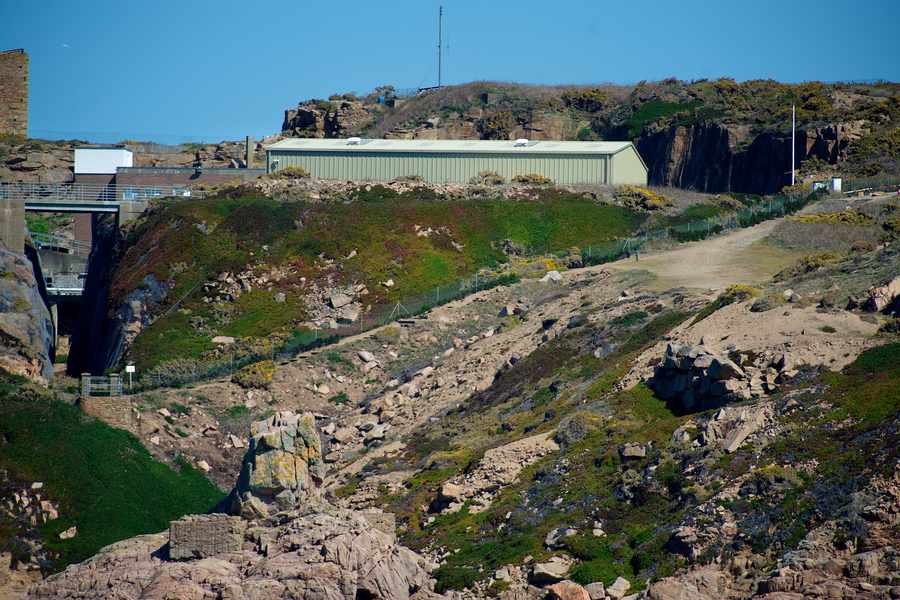
- The Reverse Osmosis desalination plant was constructed in 1999, replacing the original desalination plant constructed in 1970.
- Jersey Water says some of the reverse osmosis process equipment is now reaching the end of its serviceable life. In the past decade, sea water reverse osmosis technology has advanced significantly with major reductions in energy requirements.
- The desalination plant is a standby facility and operates infrequently when water resources can become limited in times of prolonged dry periods and drought.
- Given the Island is dependent on surface water for its public water supply, with only 120 days of storage capacity in its reservoirs, the sea water desalination plant is an essential alternative source of water.
- The proposed works comprise the installation of an additional pressure filter, replacement reverse osmosis membranes, high pressure pumps and energy recovery equipment.
- The works planned will allow an increase in fresh water production from the present 6 million litres per day to 10.8 million litres. The modified plant will result in a 36 per cent reduction in energy use. The project will cost £6 million, but the company says this will not affect customers bills.
- Jersey Waters managing director and engineer, Howard Snowden said: The project has significant benefits for increased energy efficiency, whilst improving the resilience of Islands public water supply in times of low rainfall and drought. The project is planned to commence in 2015 with completion in the spring of 2016.
- The only external works planned on site are the provision of an additional pressure filter vessel and replacement larger pipe lines. All other works planned are within the existing site buildings. Works being undertaken during this time will not affect any day to day supply to Jersey Water customers.
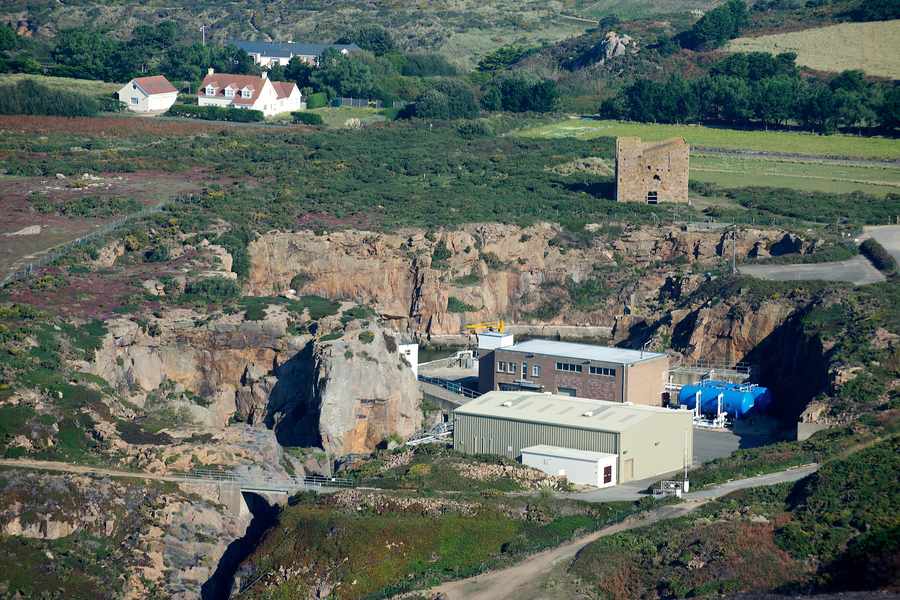

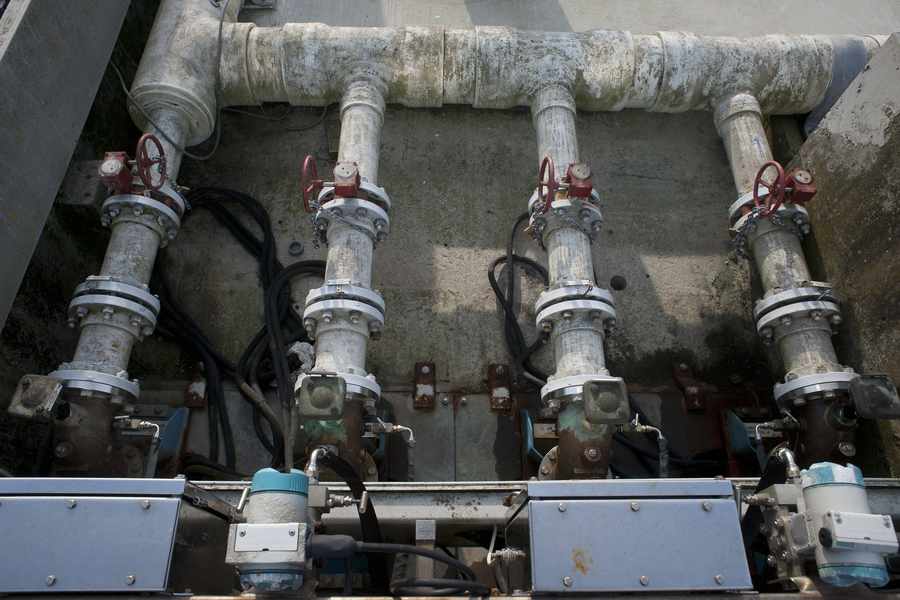
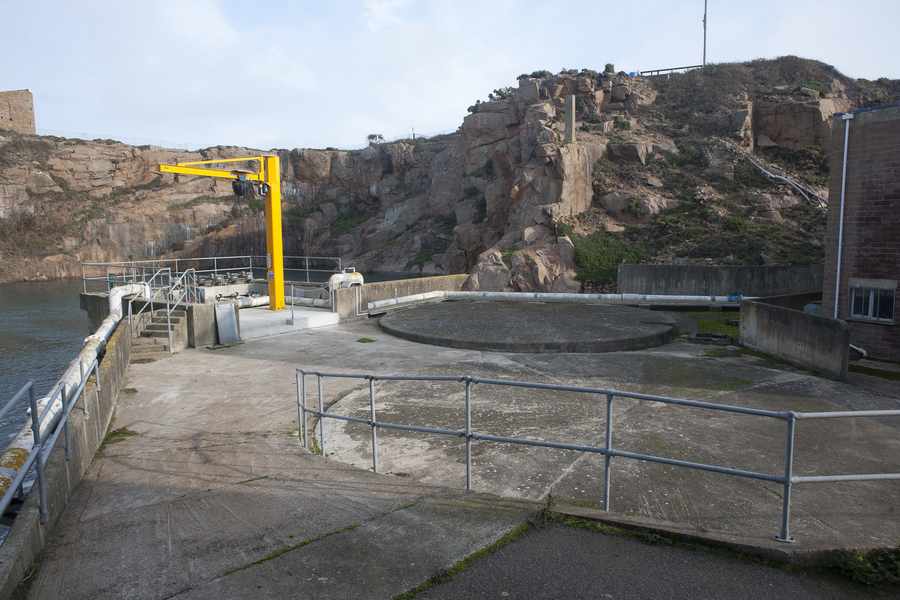
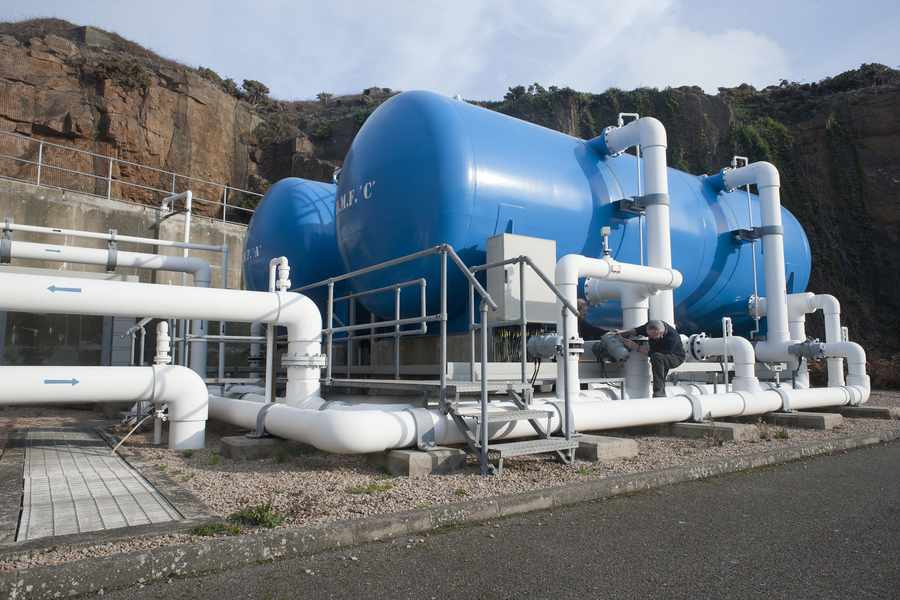
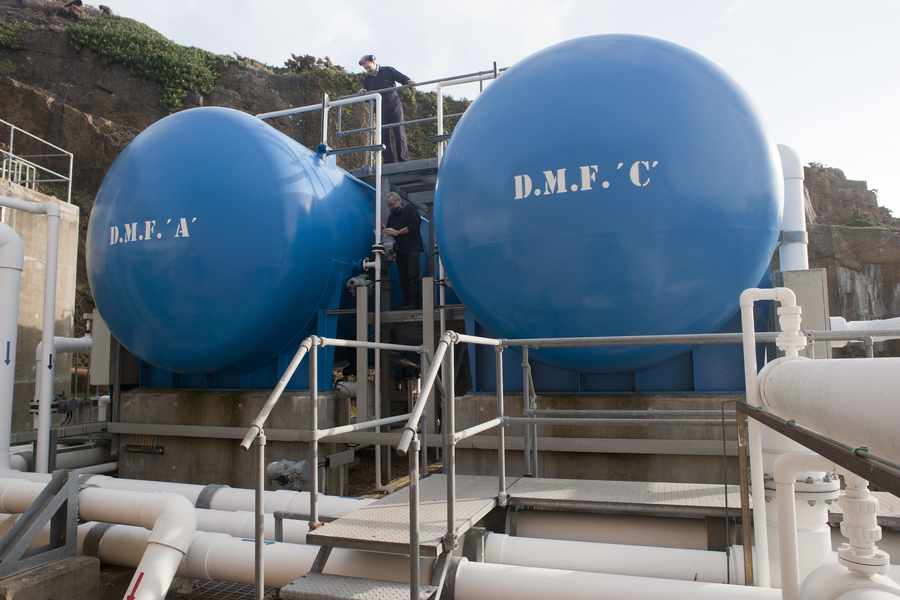
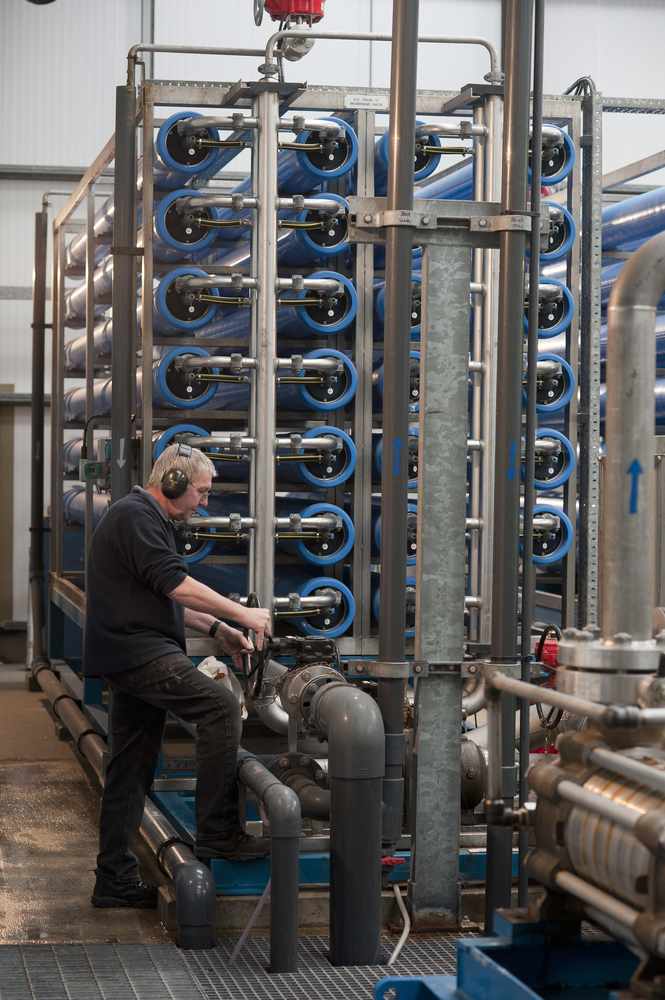
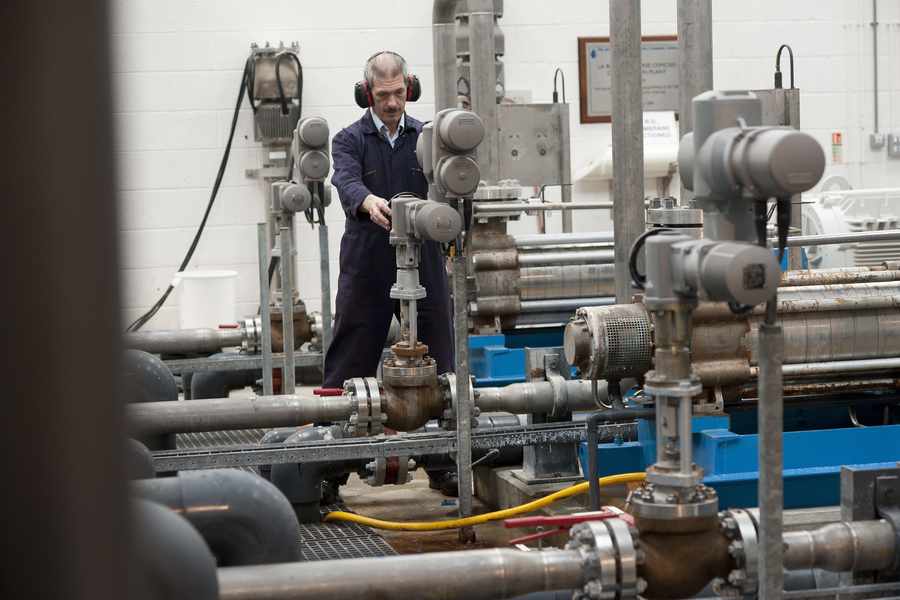
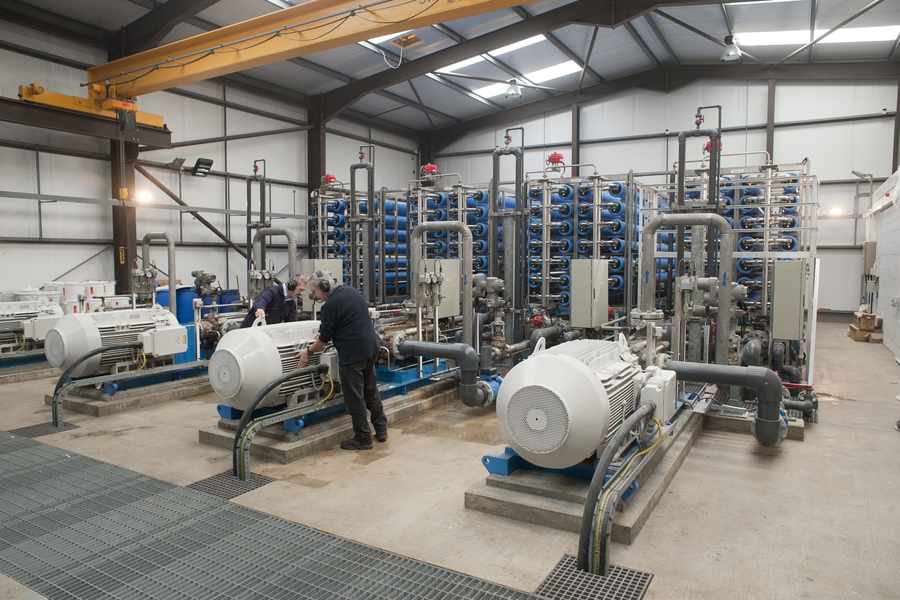
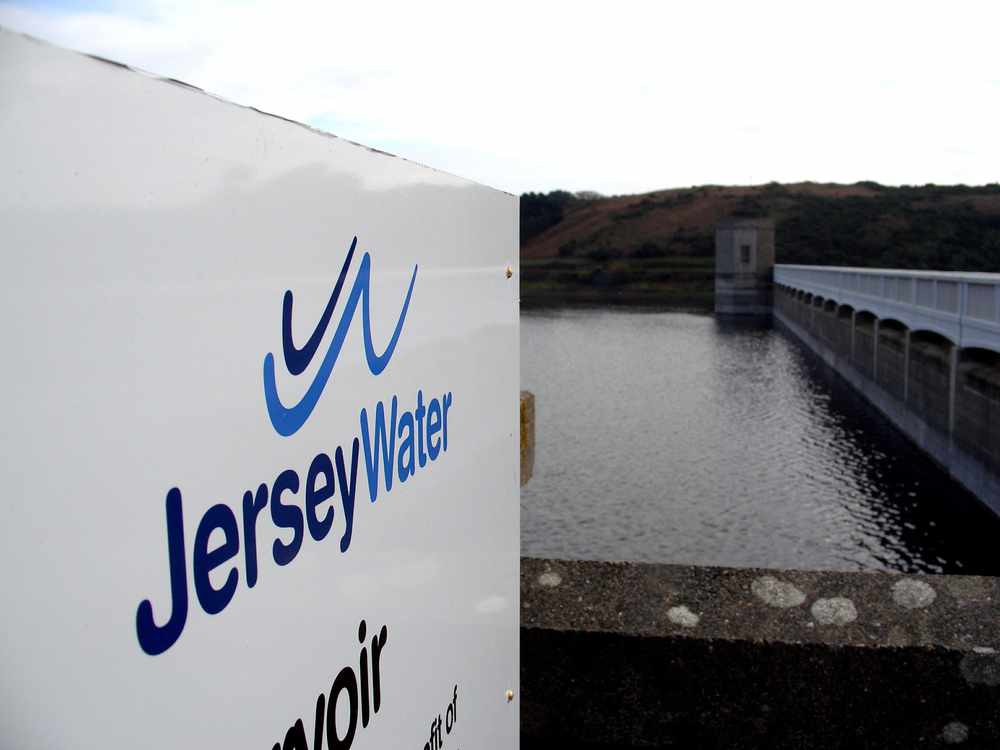
- Dating back to 1882, The Jersey New Waterworks Company Limited is the oldest established company in Jersey.
- It was set up following the demise of its predecessor, The Jersey Waterworks Company Limited hence the New in the Company name.
- One small well in the St. Lawrence was the source of the first mains water ever made available to Islanders.
- The companys main offices are in St Helier and it operates from 20 sites across the Island.
- The company collects untreated or Raw water, stores it, treats it and then distributes it.
- Helier Smith is Jersey Waters Chief Operating Officer. He was appointed to the Board as finance director in October 2003 after joining the company in 2002. Mr Helier was previously employed by KPMG in the UK and Jersey where he worked for eleven years in the manufacturing, distribution and finance sectors. Mr Smith qualified as a chartered director in 2010. He became a Fellow of the Chartered Management Institute in 2012.






